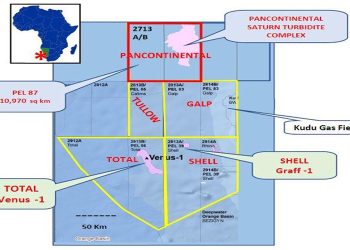
Namibia’s renewable energy sector is struggling to secure local investment, with financial institutions and investors showing increasing reluctance to fund green energy projects, former Minister of Mines and Energy Tom Alweendo has revealed.
Speaking during a recent engagement, Alweendo highlighted the risk-averse nature of local capital markets, which he said is impeding the growth of the sector despite the country’s vast renewable energy potential.
“The financial sector needs to invest, that’s all. But unfortunately, capital owners are more risk-averse when it comes to green investments. Most of them are waiting on the sidelines to see whether it will work before committing,” Alweendo said.
Namibia boasts abundant renewable energy resources, particularly in wind and solar power. However, many local companies that have obtained production licences continue to struggle with securing the necessary funding.
“It’s unfortunate, there’s a real opportunity here, but most companies still come to us wanting production licences. They get them but face difficulties in financing,” Alweendo added.
The minister warned that if local investors fail to seize the opportunities in renewable energy, foreign capital will inevitably step in, leading to concerns over Namibian ownership and participation in the sector.
“If you don’t take risks, you’ll be replaced by foreign capital. They’ll invest in these assets, and then tomorrow, we’ll be complaining that Namibians are not participating. That’s because they’re staying at the starting line, waiting instead of taking the risks,” he stated.
Alweendo urged local investors to recognise the sector’s potential and act decisively.
“There’s really an opportunity in investing in renewable energy, so I just encourage the local market to take some risks and do it. The projects are there, but they need capital,” he said.
The minister’s remarks come as Namibia advances its Renewable Energy Policy, which aims to increase the share of renewables in the national energy mix, focusing on solar, wind, biomass, and hydropower. The initiative is part of a broader strategy to reduce dependence on fossil fuels and enhance energy security, with a target of achieving 70% renewable energy in electricity generation by 2030.
As part of this drive, the Ministry of Mines and Energy last year unveiled the 2024 Ministerial Determination, which approved the procurement and implementation of 330 megawatts (MW) of new solar photovoltaic (PV) capacity.
Additionally, the Electricity Control Board (ECB) reported that as of July 2024, 23 independent power producers (IPPs) had collectively invested approximately N$5 billion in the country’s renewable energy sector.
Despite these developments, concerns remain over the ability of local investors to step up and play a more active role in financing the transition to renewable energy.







